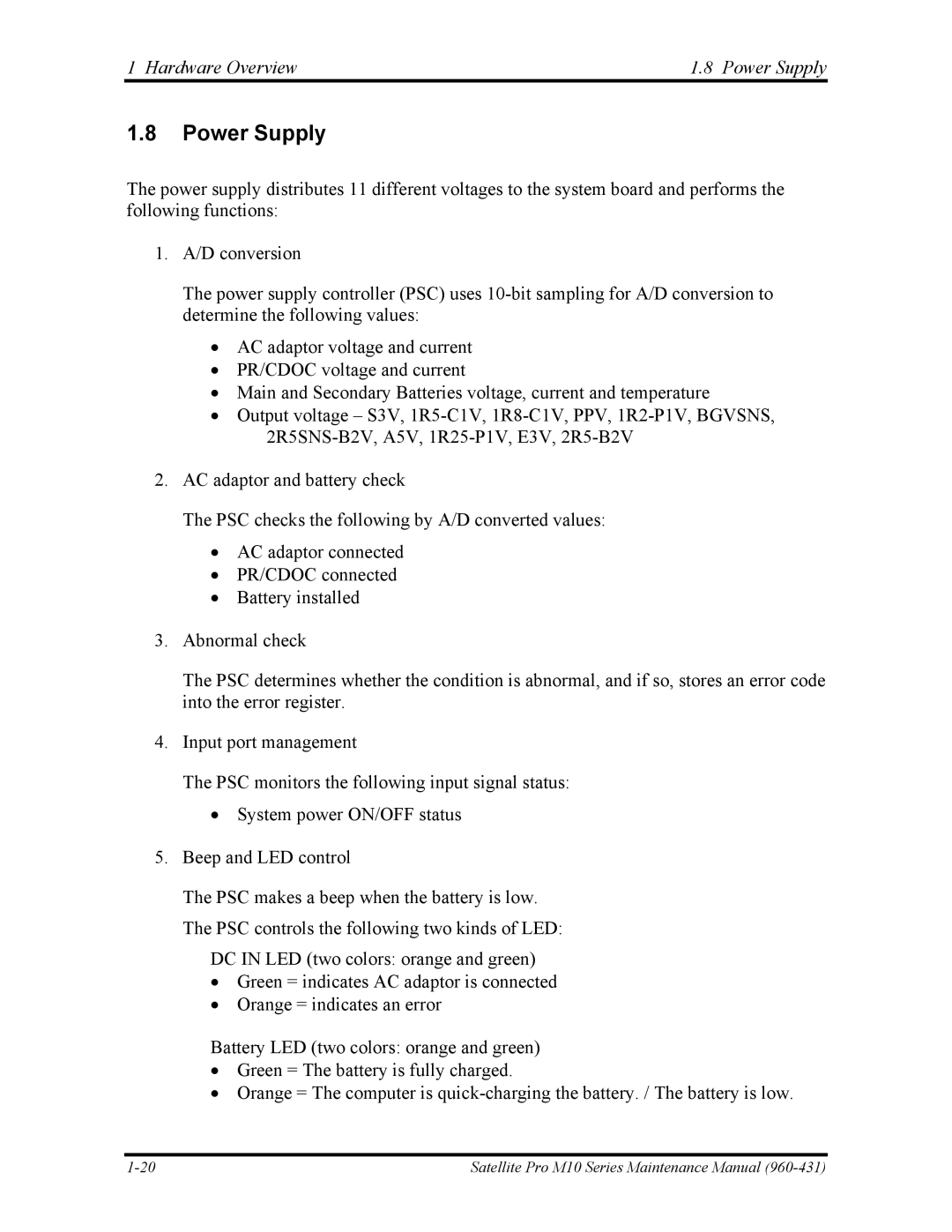1 Hardware Overview | 1.8 Power Supply |
1.8Power Supply
The power supply distributes 11 different voltages to the system board and performs the following functions:
1.A/D conversion
The power supply controller (PSC) uses
•AC adaptor voltage and current
•PR/CDOC voltage and current
•Main and Secondary Batteries voltage, current and temperature
•Output voltage – S3V,
2.AC adaptor and battery check
The PSC checks the following by A/D converted values:
•AC adaptor connected
•PR/CDOC connected
•Battery installed
3.Abnormal check
The PSC determines whether the condition is abnormal, and if so, stores an error code into the error register.
4.Input port management
The PSC monitors the following input signal status:
•System power ON/OFF status
5.Beep and LED control
The PSC makes a beep when the battery is low.
The PSC controls the following two kinds of LED:
DC IN LED (two colors: orange and green)
•Green = indicates AC adaptor is connected
•Orange = indicates an error
Battery LED (two colors: orange and green)
•Green = The battery is fully charged.
•Orange = The computer is
Satellite Pro M10 Series Maintenance Manual |
